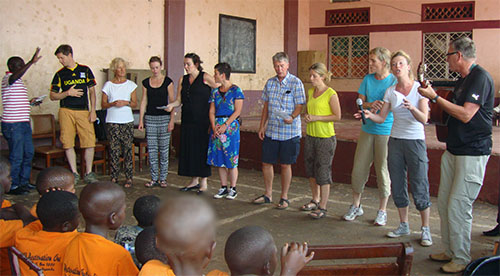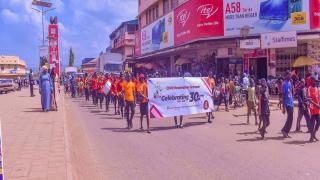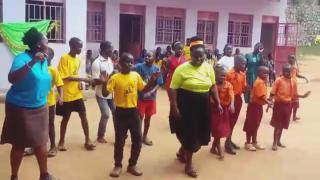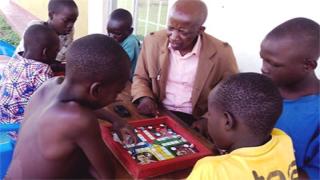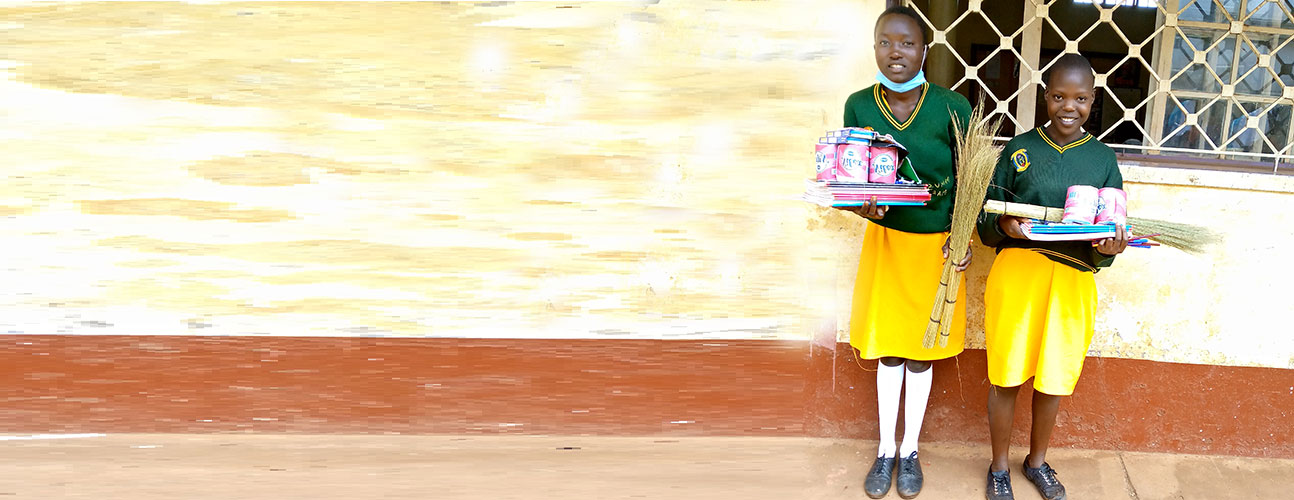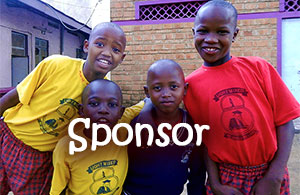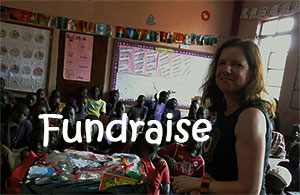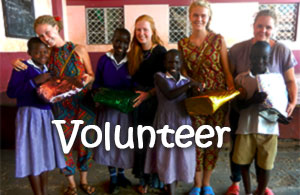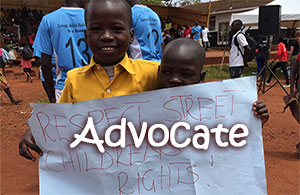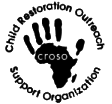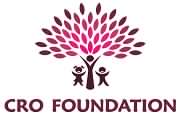1. Street visits & Day and Night Surveys
CRO social workers visit the streets often to identify children on the streets. Day and night surveys are also carried out on a quarterly basis to establish the number of part time and full time children on the streets. The causes and numbers of children on the streets are established and appropriate help is given to the children.
i. Part-time children on the streets.
- Comprise of 60% of children on the streets
- They spend most of their active hours on the streets and retire later in the evening to sleep in the slum communities.
- They are the bread-winners and responsible for their entire families.
- They either find work or beg in the streets.
ii. Full-time children on the streets.
- Comprise of 40% of children on the streets
- They work and live on the streets, and have no contact with their families
- They are engaged in sniffing drugs, sexual abuse and petty crimes.
- They are usually victims of mob-justice when caught in crime.
b. What they do on the streets
On the streets, children engage themselves in different activities such as:- Child labor ( odd jobs ranging from cleaning to carrying heavy loads), Theft, Begging, Sniffing glue/petroleum, Drug abuse, Sexual abuse and use of vulgar language.
c. Problems children face while on streets
Children on the streets suffer harassment, cold nights, various sicknesses, child abuse, child labour, sexual abuse, HIV/AIDS, hunger, lack of sanitary facilities, mob justice and many times they are sent to prison for petty crimes because they do no have anyone to bail them out.
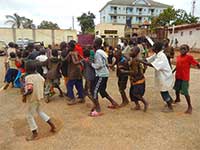
2. Rehabilitation
Children from the streets are enlisted in the rehabilitation program which runs for one year. Its curriculum is child-centered and aims at interesting the child in learning. The children are taught the following; Literacy lessons, Reproductive sexual health, Life skills, Math, Art, English, Science, Agriculture, games, Sports, Music, drama and HIV/AIDS awareness, prevention and care. After the program the child can join either formal school or vocational training.
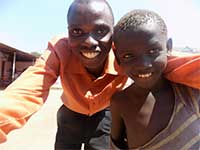
3. Psycho-social Care & Support (Counseling).
Counseling is a core activity of the project. The children are provided with psycho-social care and support to help them cope and survive within their environment. Individual, Group, peer and Family counseling, are carried out on a regular basis.
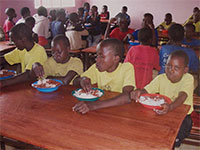
4. Nutritional Support.
CRO provides two nutritious meals daily to children who come to the center. Children who attend the rehabilitation program have breakfast and lunch. Some of the children who attend formal schools within the Mbale municipality have lunch and at the project.
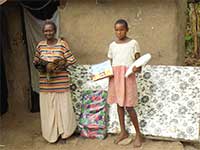
5. Reconciliation & Reintegration(Resettlement).
The families of children found on the streets are traced and children are enabled to resettle within their family extended systems. School going children are placed in schools nearest to their homes. Other children are resettled with vital items like mattresses, blankets, or a goat for an income generation project, depending on the prevailing situation in the home.
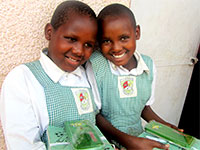
6. Formal School Sponsorship.
The children who qualify from the Rehabilitation program are sponsored to attend school in the government primary and secondary schools nearest to their home. C.R.O pays the school fees and uniforms to enable children to be retained in school. Parents/guardians are encouraged to contribute other scholastic materials e.g. books, pens etc.
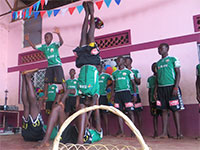
7. Recreation (Sports,Games, Music,Dance & Drama).
C.R.O encourages children to participate in different sports and games in order to develop their talents, team spirit, improve their self-image and for recreation purposes. The CRO football club has been able to participate in the district and regional leagues. Annual games are played within the CRO projects to create strong relationships among all the children of the three projects.
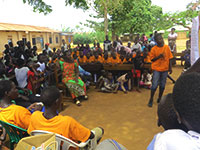
8. Peer education
Peer education is an important program in which CRO uses children to reach other children. This is because children understand each other and communicate to each other better. At every CRO center, there are Peer Clubs comprising 25 to 35 children who spearhead information sharing with other children. The Club members meet monthly to plan their activities. They carry out training and outreaches for other children and youth on the streets, in schools and in the community. The Clubs talk about Sexual Reproductive Health and rights, Behavior change, Life skills, Child Rights and Responsibilities HIV/AIDS, Child Participation, Child Savings, and, Discipline. The children also provide counseling services to each other and provide support to children who faced difficult situations. The Peer Clubs have ensured that children’s rights are observed.
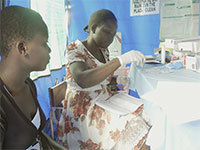
9. Health Care.
CRO owns medical clinics at its centers which treat all the street children and poor families living in the Namatala slum in Mbale, Masese slum in Jinja, Nyendo slum in Masaka and the Bar ogore slum in Lira.
C.R.O also provides family planning and immunization to the poor families. A mobile clinic is held two times in the month in the Namatala slum. This program has greatly reduced on child mortality rate and improved the health of mothers in the community.

10. Children's Annual Camp
CRO Uganda often takes children for camps so that they can have some wonderful time away from the towns and participate in various games,life skills and discipleship lessons.Children learn about drug abuse,health issues,better language use,e.t.c.During the camping,children also mak e friends with other children at times from different schools which reduces their stigimitization.Camps also impact on children behaviour change such as stopping drugs and use of vulgar language as well as deciding to join either formal or informal education programs.
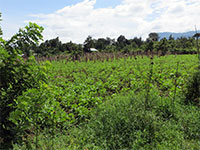
11. Agriculture.
CRO owns a small farm in the Mbale project on which Maize, Beans, Vegetables, trees and coffee are planted. Pigs and goats are also kept on the farm. The food from the farm supplements the children’s feeding program. Coffee, pigs, goats and the trees are sold to earn local income.
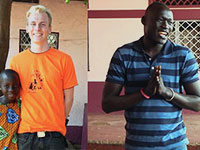
12. North-to-South Youth exchange program.
Every year CRO sends two youth to, and receives two youth from Norway who participate in the youth exchange program. The youth from Norway work at the center in the social and education departments. They work alongside CRO staff and they are instrumental in re-organizing the children’s profiles, counseling and sports activities.
In Norway, the CRO youth participate in different activities at the Hald centre and also have experience with the kindergarten. The youth exchange program has been instrumental in causing personal development, lifelong friendship and everyday life in the host country.
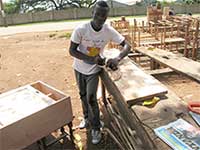
13. Informal Vocational Training.
Older street children who cannot attend formal school are encouraged to train in different skills of their choice.
Currently different children are training in skills such as carpentry, Mechanics, Catering, Cobbling, Barbering, and Tailoring. CRO pays for training fees and tools. Start up tools are provided at the end of every training.
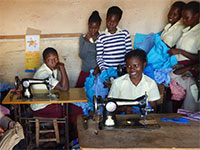
14. Formal Vocational Training.
CRO children who complete primary seven and senior four but do not qualify to join the next class, are encouraged to join formal vocational training institutes in order to acquire professional skills and certificates.
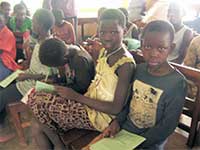
15. Outreach Program.
CRO peer educators carry out monthly outreach programs to reach other street children and youth in the wider community with messages on HIV/AIDS/STI. The peer educators disseminate information on HIV/AIDS through drama and music and make referrals to other HIV/AIDS support centers for further management.
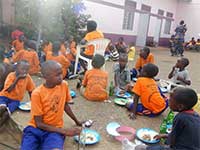
16. Christmas and Easter parties
Since these events are greatly celebrated in Uganda, CRO always holds Easter and Christmas parties for all the street children and their parents/guardians living in the slum areas so that they are part of the celebrations. The occasions are also attended by government officials and well wishers who pledge support for the project.



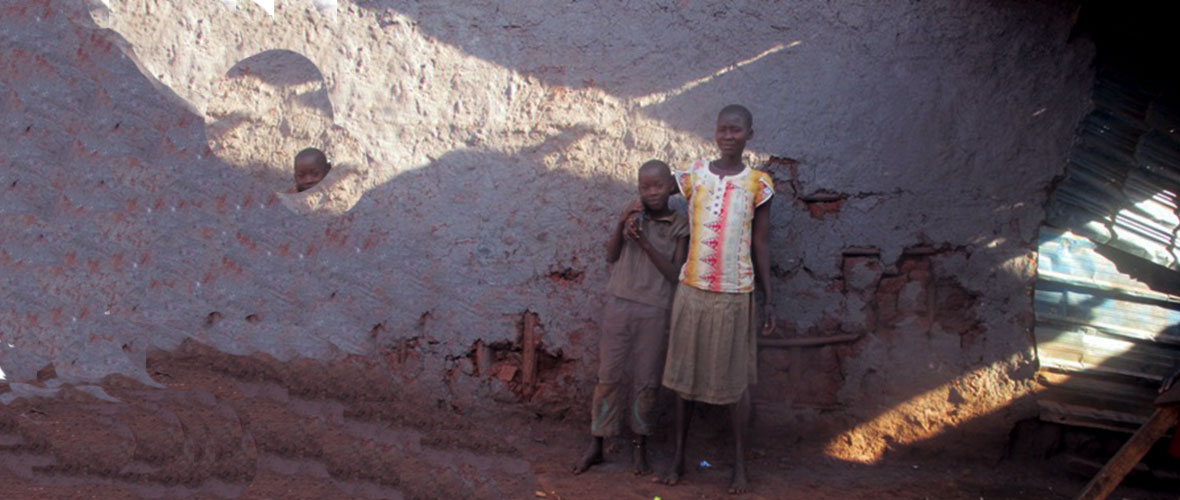
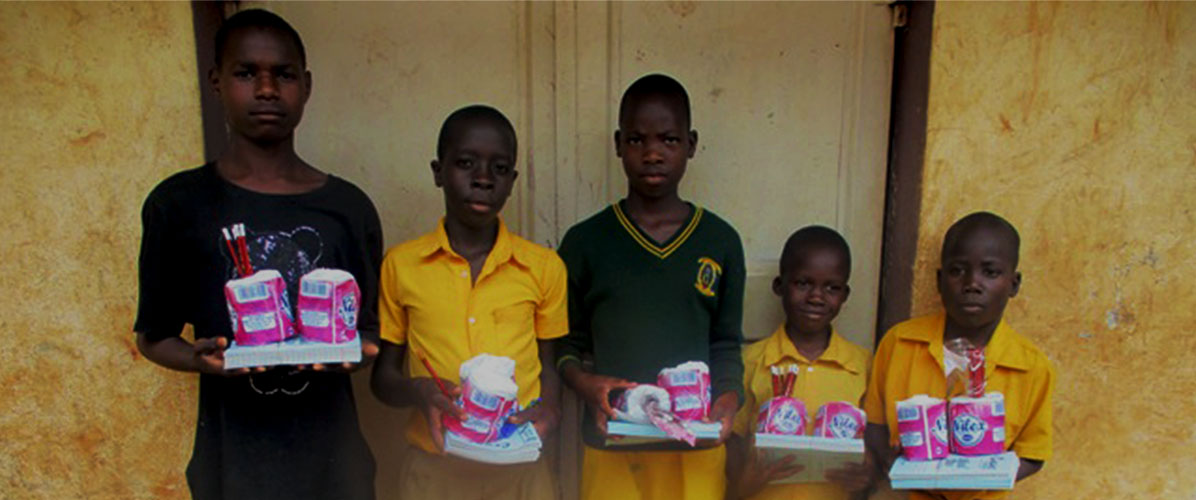

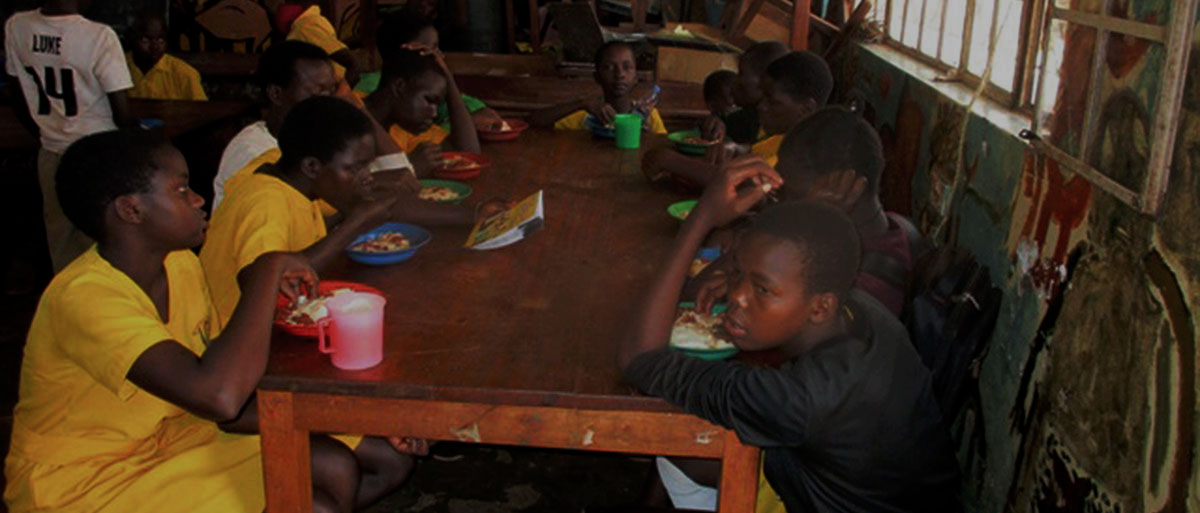
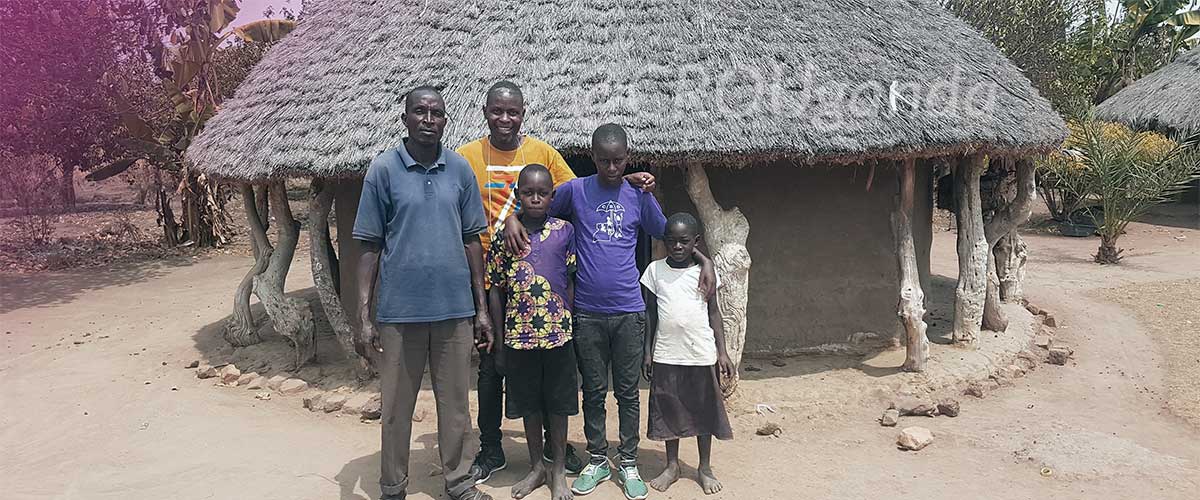
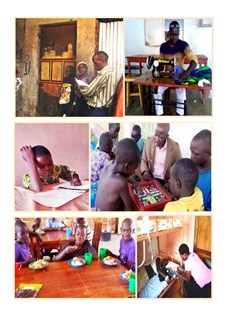






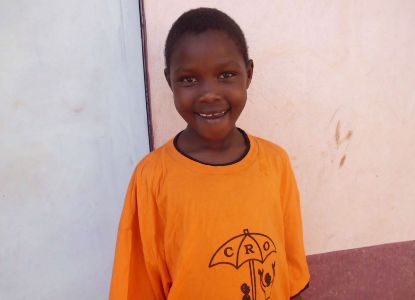 Born in 2008, Mercy a 2nd born in a family of 3 children lost her father when she was only 2 years. Due to cultural beliefs, her mother was mistreated by her in-laws as they took all the property that was owned by their late father / husband respectively.
Born in 2008, Mercy a 2nd born in a family of 3 children lost her father when she was only 2 years. Due to cultural beliefs, her mother was mistreated by her in-laws as they took all the property that was owned by their late father / husband respectively.